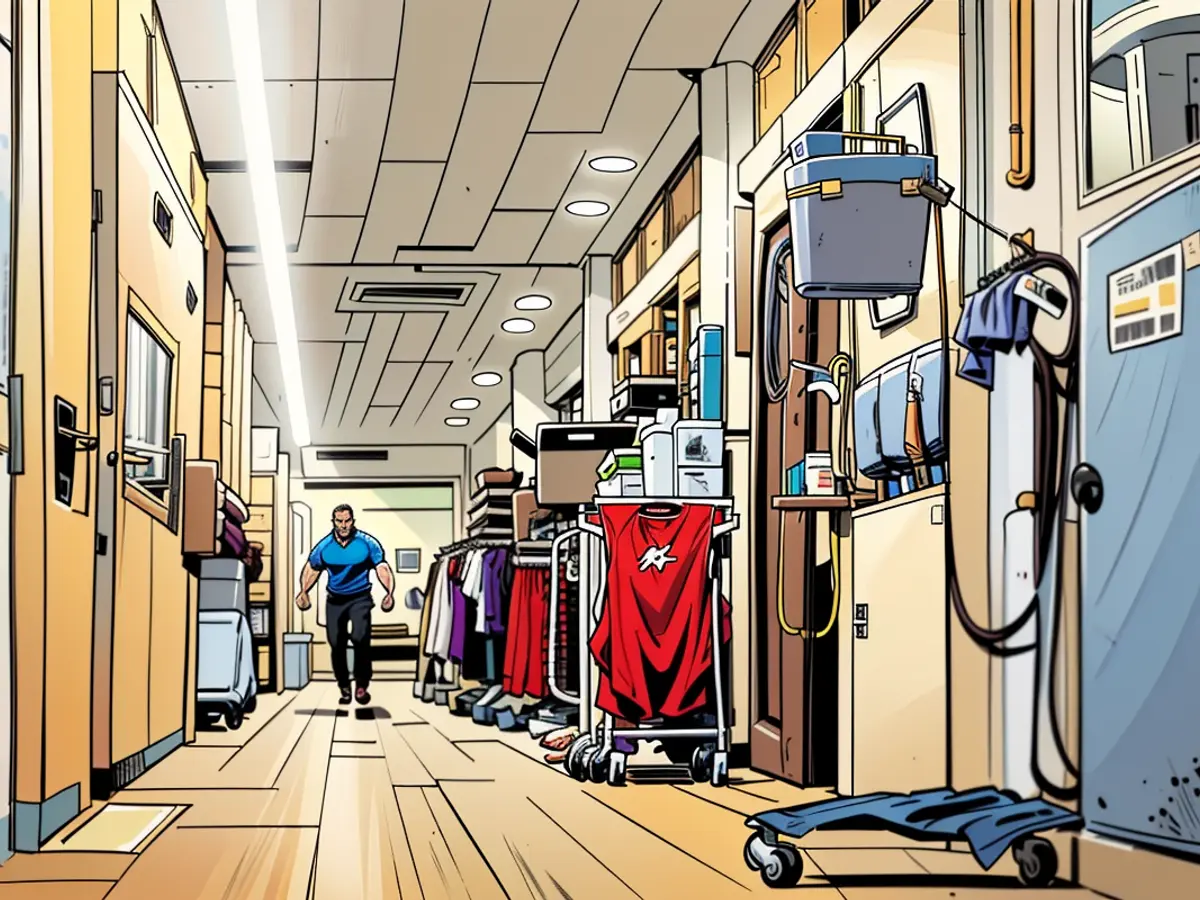Preparation for crises - The health system is not crisis-proof, says experts' council
The German healthcare system is, according to the expert council "Health and Resilience" at the Chancellery, not well prepared for future crises. Despite investing extensively in healthcare compared to other countries, there is no corresponding improvement in people's health, the council stated in a statement obtained by the German Press Agency.
Moreover, Germany is in a demographically challenging situation, as the population is aging. At the same time, around 30 percent of healthcare professionals are expected to retire in the next ten years. In addition, health inequalities are increasing. The healthcare system does not provide a sufficient basis "for preparing for crisis situations, disruptions, and shocks," the council concluded. A change of the overall "inefficient, mediocre system" seems necessary.
Preparing Early for Crises
The expert council, consisting of 23 scientists from various disciplines, began its work in March and succeeded the Corona Expert Council. Among the experts are the former chairwoman of the German Ethics Council Alena Buyx and the virologist Christian Drosten.
Medicine has made great strides in recent years in developing innovative therapies and offering new treatment options for serious illnesses, said the Charité CEO and chairman of the expert council, Heyo K. Kroemer. This is the goal of scientific developments, but it is also very cost-intensive. Therefore, the question arises as to how future, often expensive innovations can be financed and made available to all affected patient groups in a needs-based manner. "If such a development can no longer be fully financed, the question arises as to which criteria decisions are made," said Kroemer. The council believes that this foreseeable problem should be discussed now.
Redefining Innovation
To make the healthcare system more efficient and crisis-proof, the council recommends expanding the understanding of innovation. It should not only be about developing new medicines or diagnostic procedures, but also about consciously abandoning performances or measures that do not add value. Innovations could also be structural changes or modifications. For example, it has been discussed for a long time whether and which non-medical professional groups could take over certain medical tasks. The restructuring of hospital care is an example.
The German healthcare system has an international very high standard, said Kroemer. "With that comes a great responsibility to consider how one can design the system resiliently for future challenges." It is important that politics and science work proactively together and use times without special healthcare challenges, such as the Corona pandemic, to prepare structurally and fundamentally for possible developments.
Scientific policy advice like the expert council is helpful in this regard, said Kroemer. The council can build expertise outside of crises and quickly react and provide well-founded recommendations during crises.
The Coronavirus pandemic has highlighted the weaknesses of Germany's healthcare system, as it struggles to cope with the increased demand for healthcare services. Despite Germany's significant investments in healthcare, the healthcare system has not resulted in improved health outcomes for the population, as noted by the expert council "Health and Resilience."
In light of Germany's aging population and the forthcoming retirement of a large percentage of healthcare professionals, the expert council suggests redefining innovation in the healthcare system. Instead of focusing solely on developing new medicines and procedures, the council advocates for abandoning inefficient practices and considering structural changes to improve overall system efficiency and resilience.








